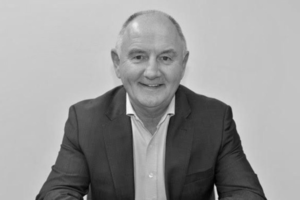Access, affordability are collateral damageBY PHIL ANDERSON | FRIDAY, 4 OCT 2019 3:16PMAnyone who has worked closely with financial advisers, knows that they are an enthusiastic and energetic group who are great with people and optimistic about the future. They ... Upgrade your subscription to access this article
Join the growing community of financial advisers
with unlimited access to our latest news, research and analysis of the industry.
Become a premium subscriber today. |
Latest News
ASIC funding levy to charge advisers $46.2m
The financial advice sector can expect to contribute $46.2 million to ASIC's industry funding levy for the 2025 financial year, new estimates show.
ASIC releases new relief for reportable situations regime
ASIC has provided AFSLs new reliefs to help them manage the reportable situations regime, which includes extending the length of investigations reportable from 30 days to 60 days.
TA Associates invests in Viridian Financial Group
TA Associates announced it will make an undisclosed investment in Viridian Financial Group to help the latter accelerate its next phase of growth.
Shaw and Partners splashes $63m for New Zealand expansion
Shaw and Partners Financial Services, a subsidiary of EFG International, has acquired a 75% stake in Auckland-based Investment Services Group (ISG) for NZ$67.5 million ($62.5m).
Further Reading
Cover Story

Moving mountains
MAGDELINE JACOVIDES
FOUNDER & FINANCIAL PLANNER
MAZI WEALTH
FOUNDER & FINANCIAL PLANNER
MAZI WEALTH
On top of running a successful practice, Mazi Wealth founder Deline Jacovides is a fierce advocate for closing the superannuation gender gap and has built a highly popular social media presence that takes financial literacy to the next level. She tells Karren Vergara where her passion comes from and how she integrates it all with family life.
























You are so very, very right. It has taken a long time for me to see or hear what you have written in its entirety. Can we keep it up on ASIC, hold them to account and expect some pragmatism and not, exclusively, legal jargon and threats.
Financial advisers are, for the most part, energetic and enthusiastic people and are seeking to do just their job and clients appreciate this but for some others.
Well done Phil Anderson and the AFA for publicising the consequences of ASIC Report 515.
This initiative by ASIC has created an unlevel playing field between those licensed by the big 5 and the rest. It has given the smaller licensees an unfair advantage.
Why is this so? More questions need to be asked of the regulator. Hopefully this activity is transferred to all other advisers quickly so we are all in the same boat soon.
This is very informative. I did not know this was happening behind the scenes. As a planner I did see many examples (this year and last) of auditors and vetters making up new rules at the last moment in order to catch planners out. I thought it was a lack of internal controls. This article says that an inconsistent ASIC is the external cause.
The headline is half right. On the conservative side of politics it is collateral damage and those politicians have learned not to care. Better to have a smaller industry than an embarrassing industry. On the Labor side it is the main goal. Less access and higher costs will reduce competition for the industry funds. That is what they want, and they are happy that the private sector should shrink. The conflict of interest in superannuation held by the ALP is a permanent ulcer for the Australian people.
Great article. I am sure those issues are being discussed by our associations but I do feel we need stronger more transparent lobbying
You have nailed the issues here that affect all advisers, not just those affected by GF commissions and not just those worried about FASEA. We are now referring a lot of advice on that has any red flags at all such as the possibility of insurance being included, it is just too hard. I feel like i no longer know how to do my job but it is interesting to look at the ASIC website and still see their sample SoA of just 12 pages that supposedly meets all requirements.
If institutions have pre-vet teams it suggests humans can follow the rules, except it seems poor ol' advisers. Can they not also learn to the same competency, then do peer reviews of each other that also lifts Best Practise? Why is this?
The greater argument suggests only bespoke financial 'tailors' can deliver what 95% of the populace need in the market of financial 'suits'. Not true of course. Its just that until now there has been only one access point in the main. Thats changing with or without advisers.
We failed to self regulate. We moaned incessantly. We failed to change. We failed to market our worth. Then,sadly failing to take equal responsibility for the outcome alongside executives. Where is the shared culpability here? None except the younger amongst us are victims here. We failed to 'out' recalcitrant mates. Most of us also wanted something for nothing in the likes of adviser association funding, rugby, lunches, trips, cheap Dealer fees and free practise management. Most sort the easy way, the cheap way.
Those that truly pursued 'best practise' and invested fully in their practise management themselves over years will find the now sometimes over regulation (including what has been pointed out in this article) nothing more than an added expense and annoyance.
Time for industry commentary to stop crying, stop trying to wind things back, take some responsibility and constructively innovate. Move forward and fast. This wont come from associations or institutions, but small enterprises that are prepared to think differtently.